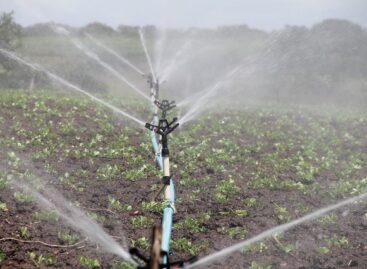What is the optimal protein-fat-carbohydrate intake?
How can we find out what the ideal ratio of protein, fat and carbohydrates is for us? What does it depend on? How should we change the ratio, for example, if we want to increase muscle mass or if we want to lose weight? How do we calculate the intake of energy and macronutrients? “What are you eating today?”, the science popularization series of the Hungarian University of Agricultural and Life Sciences (MATE) – supported by the Patronage (MEC_24) program of the National Research, Development and Innovation Office – is back with a new episode. This time, our experts will help you eat healthier by finding the optimal protein-fat-carbohydrate intake ratio.
 As MATE staff points out, proteins are essential for many life processes, but their excessive intake can put a strain on the kidneys and digestive system in the long term. Thus, as in many areas of life, moderation is important when it comes to proteins. Our experts also highlight that among both animal and vegetable fats, there are “good” sources of fat, such as marine fish rich in Omega-3 fatty acids, and there are also harmful sources of fat, such as palm oil, which mainly contains saturated fats. Regarding carbohydrates, we can learn that each type has its own role in the body, and here too, maintaining the proportions, and especially increasing fiber intake, can help us to eat healthy.
As MATE staff points out, proteins are essential for many life processes, but their excessive intake can put a strain on the kidneys and digestive system in the long term. Thus, as in many areas of life, moderation is important when it comes to proteins. Our experts also highlight that among both animal and vegetable fats, there are “good” sources of fat, such as marine fish rich in Omega-3 fatty acids, and there are also harmful sources of fat, such as palm oil, which mainly contains saturated fats. Regarding carbohydrates, we can learn that each type has its own role in the body, and here too, maintaining the proportions, and especially increasing fiber intake, can help us to eat healthy.
 The MATE film series helps consumers develop a health-conscious lifestyle and diet with easy-to-understand, scientifically based information. But it is not just about lectures or scientific materials – the series reaches the audience in the form of personal, practical, visually demanding videos. Each episode is also accompanied by a podcast discussion, where university experts explore the topics of each broadcast in more depth.
The MATE film series helps consumers develop a health-conscious lifestyle and diet with easy-to-understand, scientifically based information. But it is not just about lectures or scientific materials – the series reaches the audience in the form of personal, practical, visually demanding videos. Each episode is also accompanied by a podcast discussion, where university experts explore the topics of each broadcast in more depth.
The aim of the series is to start a dialogue. On social media platforms, viewers can ask questions, vote on topics, and comment on what they see. The organizers are also planning university competitions and workshops, where interested parties can meet researchers and get closer to science through their own experiences. This will make the series not only a source of information, but also a platform for community experience and scientific dialogue.
The professional leader of the project is Dr. Tamás Kocsis, the winning researcher of the NKFIH Scientific Patronage competition, and associate professor at the Institute of Food Science and Technology of MATE.
Related news
NAK: farmer needs assessment can help the development of irrigation training
🎧 Hallgasd a cikket: Lejátszás Szünet Folytatás Leállítás Nyelv: Auto…
Read more >State Secretary of the Ministry of Agriculture: the Ministry of Agriculture plans to publish several new tenders this year
🎧 Hallgasd a cikket: Lejátszás Szünet Folytatás Leállítás Nyelv: Auto…
Read more >Related news
Two million people have already voted, so 57 million forints will be given to locals in 125 settlements, courtesy of Tesco
🎧 Hallgasd a cikket: Lejátszás Szünet Folytatás Leállítás Nyelv: Auto…
Read more >








